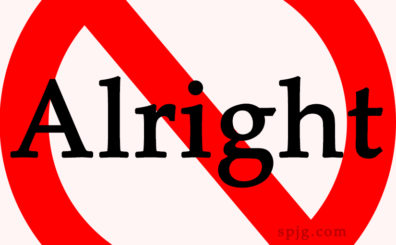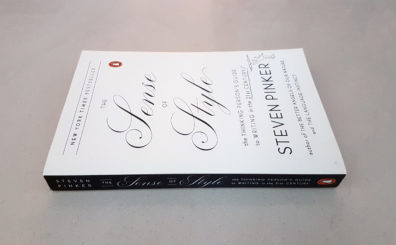And another thing…
On the Singapore classical music station, I am hearing the phrase “as well as” used in place of “and” before the last item in a series.
![]() …an opera full of passion, sacrifice as well as beautiful arias…
…an opera full of passion, sacrifice as well as beautiful arias…
This misuse of “as well as” irks me at least as much as the host’s pronunciation of “genres” as “John Rez”, which I didn’t even understand the first twenty times I heard him say it.
Let’s look at another example with “as well as”.
![]() I read fantasy, science-fiction, romance novels, as well as literary fiction.
I read fantasy, science-fiction, romance novels, as well as literary fiction.
This is just a list of four items. The sentence should just use “and”.
![]() I read fantasy, science-fiction, romance novels, and literary fiction.
I read fantasy, science-fiction, romance novels, and literary fiction.
If the sentence is going to contain “as well as”, then it should say:
![]() I read fantasy, science-fiction, and romance novels, as well as literary fiction.
I read fantasy, science-fiction, and romance novels, as well as literary fiction.
Now the sentence isn’t just a list; it means, “Of course I read literary fiction. However, in addition, I also read fantasy, science-fiction, and romance novels!” The list of three surprising genres is followed by the one obvious genre separated by the phrase “as well as”.
Here’s another correct example of how to use the phrase “as well as”:
![]() I, as well as my dad, am allergic to cats.
I, as well as my dad, am allergic to cats.
This sentence doesn’t just mean, “My dad and I are allergic to cats.” It means, “Not only is my dad allergic to cats, but guess what? I am, too!”
And yes, though maybe you think the verb sounds weird, coming, as it does, right after “my dad”, it should indeed be “am” and not “is” or “are”.
The upshot here is that the phrase “as well as” is NOT a fancier version of the word “and”. When I hear it used that way, the I feel like something is missing, unbalanced, and off-kilter.
But hey, don’t rely on my intuition. Ask the internet. Here is a particularly good set of explanations that adds a surprising note about -ing verbs, as well as upholding what I’ve already said:



